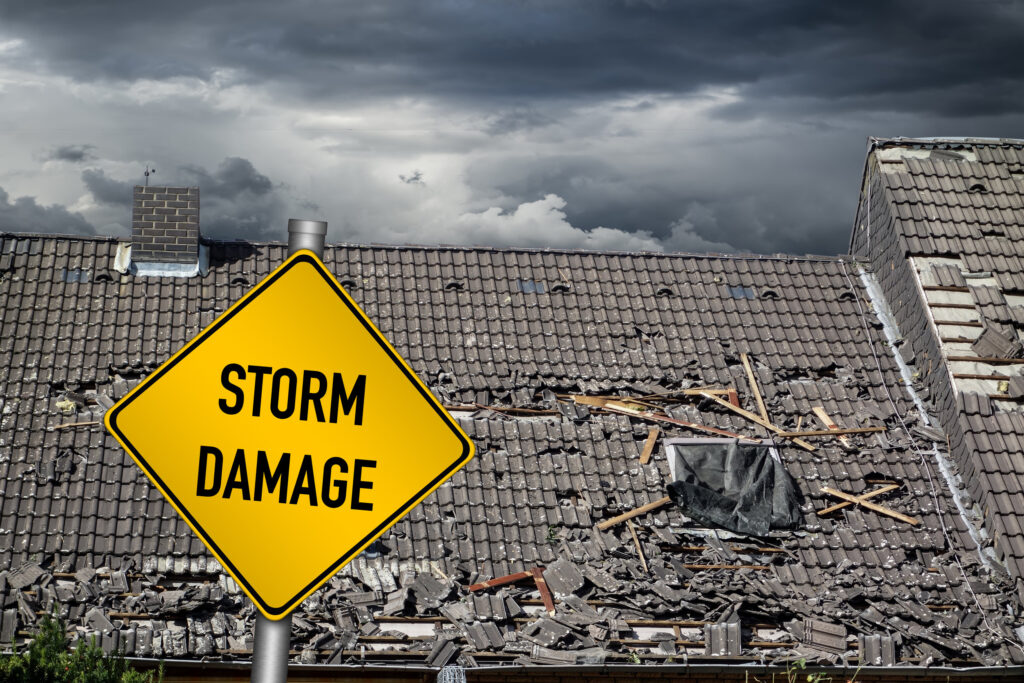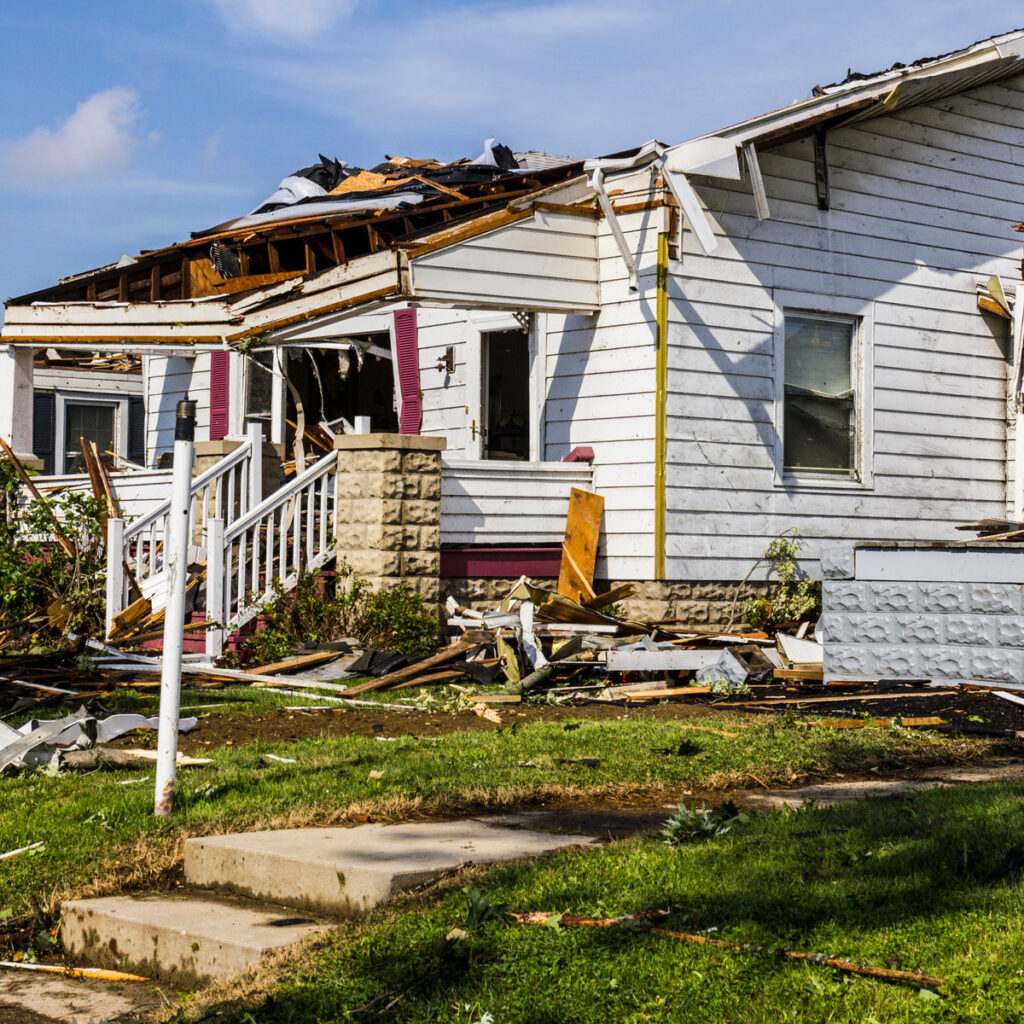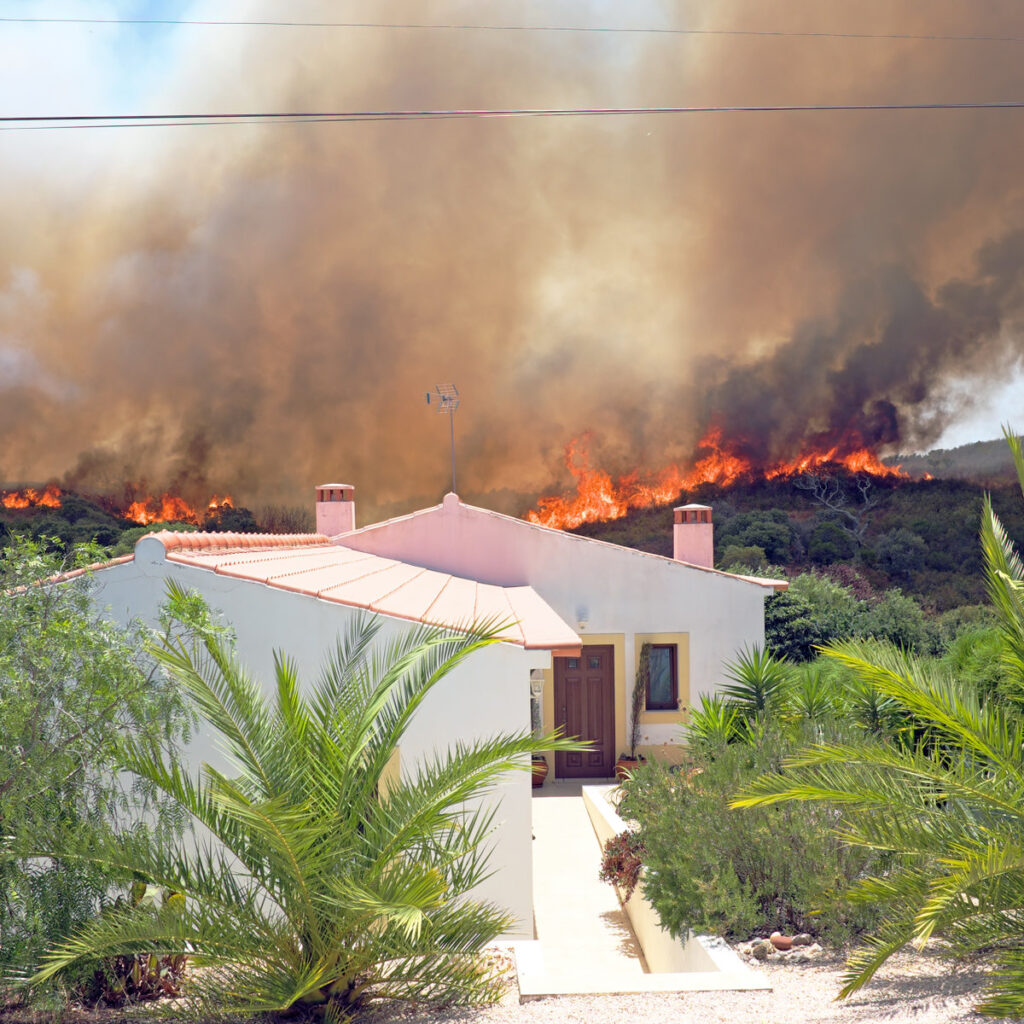Storm Damage Claims

Having to deal with extreme property damage after a wildfire or severe weather event can seem like an impossible undertaking. Especially if roof, siding, or window damage makes all or portions of your home inhabitable and your vehicle gets wrecked too. If you have experienced a loss due to a natural disaster, we understand your need to have your storm damage claim resolved as quickly as possible for fair settlement value.
Give our award-winning team at Lerner and Rowe Injury Attorneys a call toll-free at (844) 977-1900 or share your details via our online form if you’re experiencing difficulty with your insurance company after filing a personal storm damage insurance claim. We offer free consultations and our lawyers have extensive experience dealing with insurance companies and recovering just compensation for our clients.
We also know how to spot and avoid storm chasing contractors and public adjusters that may try to take advantage of those hurt by a wildfire, tornado, hurricane, flood, monsoon, or other natural disaster.
2022 Natural Disaster Stats
WILDFIRES
Hundreds of thousands of acres have been scorched by wildfires in California, Arizona, and New Mexico this year alone. Hundreds of structures have also been destroyed, as well as thousands of residents forced to evacuate their homes.
TORNADOS
As of April 27, 2022, there were 534 preliminary reported tornadoes in the United States. 25 people were killed and hundreds injured. Thousands of homes were also damaged by aggressive winds, hail, and other tornado-related weather conditions.
HURRICANES
The 2021 hurricane season resulted in an estimated $80.7 billion in damage. 2022 is expected to be even more active than previous years with hurricanes and related tropical storm conditions to include flooding, damaging winds, and more.

What Is a Storm Chaser?
Storm chasers are contractors or public adjusters who go out looking for opportunities to take on work from people who are desperate for help after a wildfire or storm damages their property.
They prey on their anxiety to try and pressure homeowners into signing costly repair contracts or service agreements.
If you live in an area that has been greatly impacted by a wildfire, tornado, hurricane, flood, monsoon, or other type of severe storm occurrence, you may have noticed an influx of construction contractors and/or public adjusters going door-to-door through your neighborhood.

How Do You Spot a Scamming Storm Chaser?
The unfortunate truth is that a significant number of storm chasing contractors are not licensed to do work in your area. Their main purpose is to get as much money as possible within a short period of time. These contractors also have a reputation for not providing the best quality of work. And with the construction industry suffering from supply shortages, any contractor that promises to complete work within a short period of time is overpromising a service they won’t be able to provide.
Conversely, a public insurance adjuster may knock on your door offering to work directly with your insurance company to get your storm damage insurance claim resolved fast. They will try to sell you on the necessity of their assistance by stating that you won’t have to pay them — that they will get paid directly by your insurance company. However, if you read the fine print on their contract, the percentage of any money they get may vary depending on different factors that may not be favorable to you.
How to Avoid Getting Scammed By Storm Chasers?
After you’ve experienced devastating loss we understand that you just want to do whatever it takes to reset your life back to normal. Unfortunately, rushing the process may end up with you out of pocket thousands of dollars without anything to show for it.

To help avoid becoming the victim of storm chasing scammers—or even your own insurance company—we suggest that you take the following steps to protect your best interests:
- Know what’s covered in your insurance policy. Depending on what terms are listed in your home insurance policy, you may or may not be covered for repairs after a natural disaster. However, if your policy does state that your storm damaged property should be covered, your insurance company may still try to deny your right to compensation.
Remember, insurance companies are profit-driven businesses and benefit by offering minimal payouts to their customers. If the companies are under excessive stress having to process an influx of wildfire, hurricane, flood, or other natural disaster insurance claims, these companies can become even more difficult to deal with. This is when a lawyer can provide you with valuable assistance.
- Coordinate any repairs with your insurance company. If your insurance company doesn’t inspect the damage before you start repairs, your storm damage claim may get denied—meaning that you’ll be stuck paying out of pocket.
If you believe you should be covered, and your storm damage claim gets denied, you have the right to appeal. You also have the right to not accept the first offer of compensation provided. Should you be on the receiving end of a denial letter or low-ball insurance payout offer, an experienced attorney can be invaluable in helping you look over your policy to help ensure that you get what you deserve. Contact us for a free consultation and policy review.
- Research multiple storm restoration contractors. This tip also applies to any preferred restoration contractors provided by your insurance company. First, check for years of local experience. Then, look for online reviews that date back a few years- not just a cluster of reviews that just popped up after the natural disaster hit. Next, check to see that they are licensed to do work in your area. You’ll also want to ask to see their proof of contractor’s liability insurance and make sure the policy’s effective dates have not expired.
- Do not sign anything… without carefully reading and understanding the contract terms of payment, services to be provided, when they will start work and plan to finish, etc. If you do not understand the contract, speak with an attorney for clarity. The last thing you want to deal with is having to try to break a contract and a possible lien for non-payment from a scamming storm chaser.
- Get it in writing. Once you do find a restoration contractor that you want to hire, make sure that you receive a signed copy from them of the agreement. An email or phone agreement is not good enough.
- Document everything. If the contractor provides poor quality work, leaves things unfinished or broken, as well as trashes your property, etc. you need to take videos and photos to document the current state of your property. That way you have evidence that can later be used if you need to go to litigation against a scamming contractor.
- Never pay cash. Use a check or other accepted form of payment that can be traced. Additionally, never release a large deposit. Your money may disappear before the work is done.
Get Help Reviewing Storm Damage Claims and Contracts
Finding yourself having to deal with an unplanned storm damage project can be stressful. Even more so if an unethical contractor or public adjuster tries to take advantage of you by pressuring you into signing a contract. Or, if your insurance company tries to fully or partially deny your storm damage claim, despite what is written in your homeowner policy.
If you find yourself facing any of these situations, we are here to help by providing free consultations. We can carefully review your homeowners insurance policy or contract agreement and then provide a thoughtful explanation of your options.
Contact us now to get some peace of mind dealing with a storm damage claim and/or contract. Our law firm has offices in Nevada, Arizona, California, New Mexico, Tennessee, Indiana, and Illinois.
Our attorneys are also licensed to practice in other states across the country to better serve our clients. Just know that we are here to help you when you need it most.



